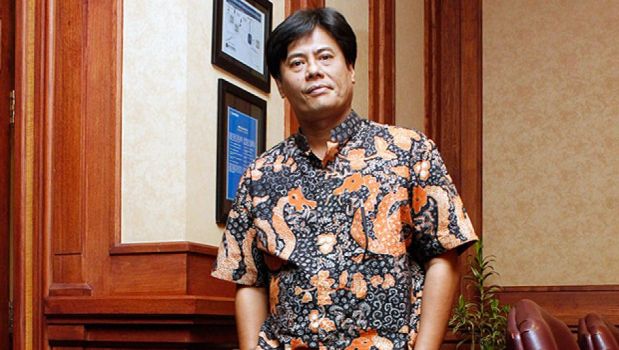“Last year, our revenue was approximately Rp37 trillion. But we had a loss reaching Rp615 billion,” said Elia Massa Manik. After reviewing the performances of PTPN I through PTPN XIV, said Elia Massa, it was decided at the Shareholder Meeting to proceed with the restructuring. The main goal was to achieve efficiency and effectiveness in every aspect. Restructuring is not just about finances. The holding company is paying Rp12.5 billion each day in interest alone. “That is why improving PTPN is now our common duty. Ultimately, if PTPN is healthy and our plantations are thriving, we will be more prosperous,” he explained. Under the leadership of Elia Massa Manik, the number of PTPN directors have been reduced to a maximum of three. In the past, a single PTPN could have four to five directors. Elia cited the example of private national plantations where the number of directors is limited to two. “Meanwhile, PTPNs can have up to five directors. I would rather focus on improving productivity, then deal with the number of people. The new directors were selected internally, so we picked the best,” he explained. “We have to change at the top management level. A leader becomes a role model. If we can improve the role model, then the acceleration and improvement process will proceed much more quickly,” he explained. So, what is Elia’s strategy to transform the state-owned plantation holding company into a world-class company? The following is an excerpt from an interview by the editorial team of Majalah SAWIT INDONESIA following the changes in the board of directors at PTPN I through XIV in Jakarta, in mid-July: “In your view, what are the key improvements that you will prioritize to improve the performance of this state-owned plantation company?” Currently, our average production costs are around 35 percent higher than those of private companies. This needs to be addressed. The high production costs are caused by the relatively low productivity. In my opinion, the way to manage costs is pretty much the same everywhere. These are the areas that we are focused on. The improvement process begins by improving the people structure in general. At private national companies, the number of directors normally does not exceed two to manage a plantation. However, we’ve had as many as five directors on the boards of our PTPNs. Consequently, we have rationalized the management structure. I would rather focus on improving productivity than reducing the number of people. That’s why the changes are starting at the top management level. Ultimately, the leader becomes a role model. By improving the role models, I am confident that the acceleration and improvement process will proceed much more quickly. At the same time, we can build a better system. Consequently, we are accelerating the integration of our systems, so that they will eventually be managed with an integrated system. Telkom will be responsible for this process. The contract has already been signed and we are expecting the systems to be fully integrated within a year. That will allow Mr. Wahyu (editor’s note: Deputy Minister of State-Owned Enterprises) to monitor them. Of the 14 PTPNs, only one, PTPN X, currently has an effective SAP system implementation. Later on, we will build the system up from the ground up. That way, each manager will be responsible for the profit and loss of their plantation. We will also be making changes to our system. “What targets did the Minister of State-Owned Enterprises set for you before you took charge as President Director of PTPN 3 Holding?” The target was to make it healthy. “How do you intend to make PTPN healthier?” To improve the agro industry, we need to implement a three-pronged approach, namely upstream, midstream, and downstream. The upstream sector needs to be more efficient. To make downstream operations (downstream) successful, we need an efficient upstream. This is a challenge in managing an agro holding company. If we can’t improve efficiency, then forget about downstream activities. They will fail. Currently, 95 percent of our PTPN operations are upstream, and palm oil is our mainstay. That’s why we need to expand and boost capacity. “Is it possible to improve productivity as quickly as possible?” Productivity can be improved within three years. In the case of oil palm, productivity is determined by the variety and the density of the palm trees. For example, if our plantation has 120 trees per hectare and another company has 130 trees per hectare, productivity will naturally be different. We also need a consistent replanting program for various age groups. I have only been in my position for three months and the government has a program to boost the productivity of sugar cane farmers. Over the last five years, the amount of land planted by farmers with sugar cane has declined by 5%, leading to a drop in production. We need to encourage productivity, and PTPN needs to increase its cane land. If we want to achieve self-sufficiency and price stability, we need to do that. Cocoa is another example. We used to have 20,000 hectares of PTPN cocoa plantations. Today we only have 3,000 hectares. The price may not have been good at the time and there were also pest attacks. That’s why we need to develop better planting strategies. We can’t go around converting crops willy-nilly. Although the price of cacao has been good in the last five years, we have been converting our crops, and this is a lesson that we need to learn.
https://sawitindonesia.com/rubrikasi-majalah/sosok/elia-massa-manik-membawa-holding-bumn-perkebunan-menjadi-world-class-company/